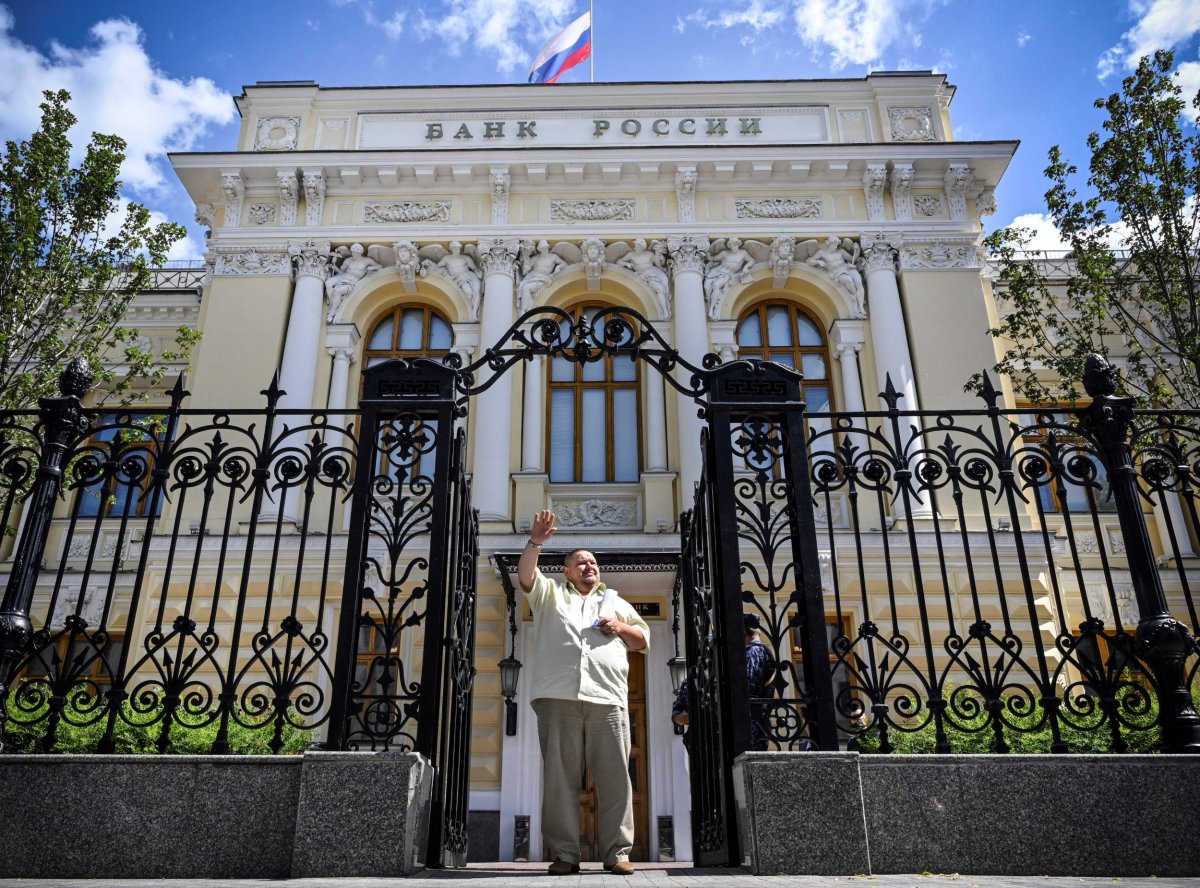Russia believes it has "lost" $300 billion in assets frozen due to sanctions, an independent Russian news outlet has reported, as a lengthy legal fight looms over the money the Biden administration reportedly wants to seize to rebuild Ukraine.
However, a market analyst has told Newsweek that such a confiscation of Russian assets could mean that economies in the West will "suffer more losses than gains."
Vladimir Putin's full-scale invasion of Ukraine saw sanctions aimed at isolating Moscow from the global financial system and choke its revenue to wage war. The U.S. and its allies prohibit transactions with Russia's central bank and finance ministry, amounting to around $300 billion of assets in the West in major currencies, gold and government bonds.
Bloomberg reported that the White House had shifted its position to back legislation before Congress that would allow, but not oblige, President Joe Biden to confiscate frozen Russian assets on U.S. territory.

However, the news outlet said the Bank of Russia will fight this and is nearing an agreement with international law firms to represent the country's interests in court.
Meanwhile, independent Russian news outlet The Bell reported on Saturday, "from Russia's point of view, the frozen assets are lost," although Moscow is "still threatening retaliatory measures if confiscation goes ahead." The Russian Foreign Ministry said last week the U.S. plan was "21st century piracy" and threatened retaliation.
This could see Russia nationalizing foreign-owned property and accounts and severing diplomatic relations, which in turn could create difficulties for the Russian currency, the ruble, and the markets, The Bell said. "It seems unlikely that the fate of these assets will be decided in the next six months," the outlet, critical of the Kremlin, added.
Grzegorz Drozdz, market analyst at Invest.Conotoxia.com told Newsweek that there is no provision for seizing assets of a foreign state Western states are not clearly at war with.
"Otherwise, the confiscation of Russian assets," including those of sanctioned oligarchs, "would have been carried out long ago to support Ukraine in the ongoing conflict."
"The problem with the confiscation of Russia's frozen assets is a scenario in which it is highly likely that the Western economies will suffer more losses than gains," Drozdz said. "It is worth emphasizing that their strength is largely based on the rule of law and the protection of investors' capital."
Reuters reported one scenario to circumvent delays in getting the frozen assets could be to issue "reparation bonds" in which Kyiv would sell securities that would pay out only if it received reparations from Russia.
"Since the reserves are accruing interest, they could be used to pay both the bonds' principal and coupons," the agency said. This differs from confiscation, because the assets would only be transferred if a legitimate compensation mechanism first ruled that damages were due to Ukraine.
Focusing the minds on how to fund Ukraine are the hold-ups in U.S. Congress in approving more than $61 billion in aid for Kyiv. Putin's closest EU ally, Hungarian Prime Minister Viktor Orban stopped a €50 billion ($55 billion) package of aid.
Drozdz said that if the assets of Russia's central bank were confiscated, "confidence in the U.S. dollar and euro could be significantly affected, which would have an essential impact on the global competitiveness of Western countries."
Drozdz added that it was notable that according to the Ukraine Support Tracker, the volume of aid for Kyiv fell by 87 percent between August and October 2023 compared to the same period in 2022. "Hence, there seems to be virtually no other option for Ukraine to finance its operation other than issuing high-interest bonds," he said.
Uncommon Knowledge
Newsweek is committed to challenging conventional wisdom and finding connections in the search for common ground.
Newsweek is committed to challenging conventional wisdom and finding connections in the search for common ground.
About the writer
Brendan Cole is a Newsweek Senior News Reporter based in London, UK. His focus is Russia and Ukraine, in particular ... Read more





